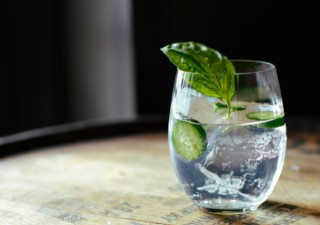Branding Regulations in the Indian Food Industry
18 October 2012

The food industry, which is one of the largest sectors in the Indian economy, is governed by multiple laws regulating standards in relation to food additives, food colours, preservatives, contaminants, product marking and labelling. The laws are enforced by the Director General of Health Services in the Ministry of Health and Family Welfare.
The requirements for labelling food products are laid down under several laws, including the Trade Marks Act, 1999, which sets forth specifications for a product label to be registered as a trademark by the Trade Mark Registry. For a label to qualify as a trademark under the Act, it should, inter alia, be distinctive of the goods and non-indicative of the kind, quality, quantity, intended purpose, values, geographical origin or time of production or other characteristics of the goods. Further, the label should not be identical or similar to an earlier label mark owned by another person.
Misbranding or improper labelling of food products is also regulated by the provisions of the Prevention of Food Adulteration Act, 1954 and the Rules thereunder. Labels containing false statements or claims or pictorial devices which can mislead public about the nature, origin, quantity, nutritive value, composition, properties of the products are prohibited and are punishable under the Act. Similar labelling requirements can also be found in the Bureau of Indian Standards Act which provides for granting licenses to affix standards on products. The Bureau of Indian Standards can take action and suspend or cancel the license of an entity which fails to conform with the prescribed standards of product manufacture and labelling.
Given the multiplicity of rules governing the labelling and marking of food products, conflicts could arise between the branding requirements and decisions of the regulatory authorities operating under different statutes. In one such case concerning the label of Aquafina packaged drinking water bottled and sold by Pepsico India, the Bureau of Indian Standards issued orders to Pepsico to alter its Aquafina label by deleting the words “purity guaranteed” and the pictorial representation of snow-capped mountains. The Bureau was of the opinion that the words “purity guaranteed” and the pictorial representation suggested that the product was sourced from the mountains, which was a misleading claim regarding the origin of water. The Bureau also believed the words and label were likely to create confusion in the mind of general public regarding the nature, composition and properties of the water.
In 2006, Pepsico filed a writ petition at the High Court of Delhi contending that the Bureau did not have jurisdiction to deal with issues of labelling and that it had powers only in relation to laying down and regulating standards of articles. Pepsico also contended that the Aquafina label with the words “purity guaranteed” and the pictorial representation was already registered by the Indian Trade Marks Registry and in 150 other jurisdictions of the world, which showed that the label was not objectionable or misleading in any manner. The Delhi High Court upheld the arguments of Pepsico and passed an order in the company’s favour. The order was appealed before a division bench of the Delhi High Court by the Bureau of Indian Standards in 2008.
The Appellate court, while rejecting the arguments of Pepsico, held that the Bureau has been established exclusively for the harmonious development of the activities of standardization, marking and quality certification of goods and for any matters connected or incidental and therefore had jurisdiction to issue the instructions to Pepsico. The court also held that “the plea of Pepsico that the registration of a trademark with the Trade Mark Registry ensures that it can use the trademark without interference from the Bureau cannot be sustained. The registration of a trademark merely guarantees rights to the registrant vis-à-vis commercial exploitation if such a mark is used wrongfully in the market by other rivals in the trade. Mere registration of the mark under the Trade Marks Act cannot be construed to be a defence against any action taken under the Bureau of Indian Standards Act. If such a mark otherwise falls under the scope of other statutory enactments including the present Act and does not conform to the standards laid down under the relevant statute it can still be proceeded against under such statute notwithstanding its trademark registration.”
The Appeal was partly allowed by the Court, which held that “the nature of the expression “purity guaranteed” does not contravene any provision of Bureau of Indian Standards Act or the Prevention of Food Adulteration Rules and can be used subject to addition of the phrase “as per BIS standards.” However, Pepsico was directed to remove the pictorial device snow-capped mountains from the Aquafina label within six months from the date of the judgment. The Court also directed the Bureau to take appropriate action against other offending manufacturers if any statutory provision under the relevant Acts and the specifications thereunder is violated.
This judgment elucidates the powers of regulatory authorities under different regulations governing labelling of food products. Pepsico has, however, appealed to the Supreme Court against the decision of the division bench of the Delhi High Court.
Krishna & Saurastri
K.K. Chambers, 1st Floor,
Sir P.T. Marg, Fort,
Mumbai 400 001, India
T: +91 22 2200 6322
F: +91 22 2200 6326
E: info@krishnaandsaurastri.com
W: www.krishnaandsaurastri.com






